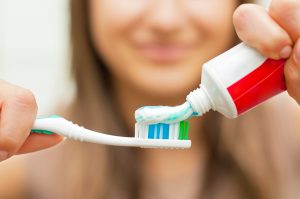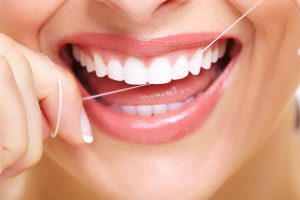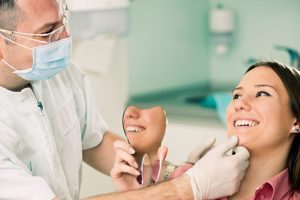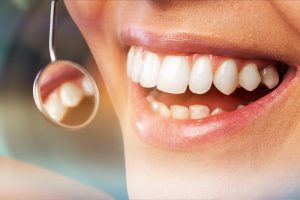Tips to Keep Your Smile Healthy and White
One of the first things most people notice about a person is their smile. A beautiful smile leaves a lasting impression and builds self-confidence. Although having an attractive smile is important, it is more important to have a healthy one.
How do I know if I am brushing my teeth properly?
Brushing twice a day reduces plaque, a sticky bacterial substance, that covers the surface of the teeth. Two minutes is the optimum amount of time to brush your teeth. Set the timer when you brush in the morning and at night.
The method you use to brush your teeth is just as important as how long you clean them for. The right way to brush your teeth is to hold your toothbrush at a 45-degree angle, point it at the gum line, and brush each tooth about 10 times in a tiny circular motion.
Brushing too hard, however, can irritate gums and damage your teeth. Horizontal scrubbing can lead to gum recession and abrasion of tooth root surfaces. To avoid this, use a toothbrush with soft bristles and gently massage your teeth and gums.
Is flossing really that important?
Flossing is another excellent way to keep your mouth clean because it can remove plaque from certain areas that are too difficult to reach by brushing alone.
However, just like brushing, there is a right and wrong way to floss. When flossing, keep the string against the tooth, which will cause friction and loosen the food particles that are caught between your teeth. For best results, it is a
good idea to floss before you brush and after meals. Developing a good dental regime is a proven way to maintain healthy gums, prevent tooth decay, and eschew bad breath.
Since I already practice good oral hygiene, do I still need to see the dentist every year?
According to the American Dental Association (ADA), the frequency for which you see a dentist can vary from person to person depending on age and health, but the standard for dental visits is generally every 6 months. Children should start seeing a dentist as soon as they receive their first tooth. For those with oral health problems and illnesses such as diabetes or an autoimmune disease, a dentist may schedule visits more often than once or twice a year.
It is estimated that about 20 percent of Americans suffer from some level of dental phobia or anxiety. If you fall into this category, you are not alone. But don’t let your fears prevent you from going to the dentist. Regular dental visits are crucial in the detection and prevention of oral problems such as gum disease, tooth decay or loss, and oral cancer.
Are there certain foods I should avoid?
Some foods are more harmful to your teeth and gums than others. Here are some tips on foods to limit, or avoid altogether:
Too Much Sugar
A diet high in sugar can expedite tooth decay, so cut down on your sugar intake. Soda, when consumed in excess, can erode the enamel, or protective shield on your teeth, which can lead to tooth decay. If you are an avid soda drinker, you should probably switch to water.
Sticky or Crunchy
Another food to be mindful of is dried fruits. Although there can be nutritional benefits to this fun snack, foods like this can get stuck in between your teeth and if left there, can cause bacteria to build up. After eating dried fruits, be sure to floss and rinse your mouth immediately afterward. The same goes for crunchy food like nuts and potato chips, which have a habit of getting stuck in between your teeth and gums as well.
Highly Acidic
Although citrus fruits and juices can be a good natural source of vitamin C, they are full of acid that can break down the enamel on your teeth. Be mindful of juices like grapefruit and lemon and how much you consume.
Causes Discoloration
Stains to your teeth caused by coffee and red wine can leave lasting effects and are hard to get rid of without extensive whitening treatment. Also, when you add copious amounts of cream and sugar to your daily cup of brew, all that sugar is not good for teeth. It is recommended not to drink more than 4 cups of coffee a day. So be mindful of how much coffee you drink and the additives that you put in your coffee. After your second or third cup, you may want to switch to black.
What habits and behaviors affect my teeth and gums?
Don’t smoke. Smoking cigarettes, cigars, e-cigarettes or using any kind of tobacco products is dangerous and negatively impacts your gums and teeth. If you do smoke, stop immediately. If you don’t smoke, now is not a good time to start.
Limit alcohol intake. Drinking excessively can lead to irreversible damage. Research shows that alcohol abuse is linked to gum disease. The more you drink, the more at risk you are and if you already have gum disease, drinking heavily will exacerbate the disease.
Stress less. Teeth grinding can wear your teeth down over time. If you have problems with grinding your teeth due to stress, see Dr. Imm about taking preventative measures. A mouth guard can protect against this.
Don’t bite, don’t chew. Chewing on ice, pencils, or using teeth to open things can irritate the tissue in your teeth that can cause cracks and chips.
It can be a challenge to keep your smile pearly and white. Continue to practice good oral hygiene and schedule regular dental appointments. If you live near Columbus, Ohio, and are nervous about seeing a dentist, come to 5 Points Advanced Dentistry, where you will be greeted by a team of friendly and knowledgeable professionals that you can trust with your oral health.




